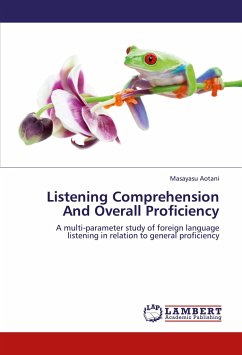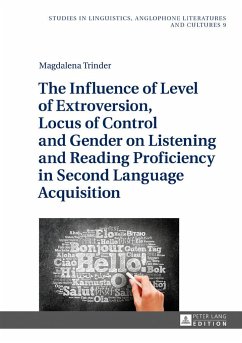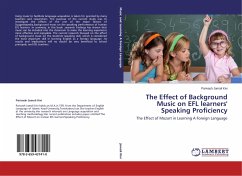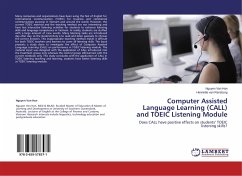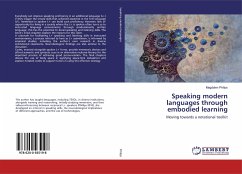
Speaking modern languages through embodied learning
Moving towards a notational toolkit
Versandkostenfrei!
Versandfertig in 6-10 Tagen
47,99 €
inkl. MwSt.

PAYBACK Punkte
24 °P sammeln!
Everybody can improve speaking proficiency in an additional language (L+) if they trigger the innate skills that achieved expertise in the first language (L1). Immersion in spoken L+ can build such proficiency. However, lack of opportunity for living in a society where the L+ is spoken often turns us to instructed language environments through predominantly written language; this has the potential to derail speaking and listening skills. The book's initial chapters explore the reasons for this claim.A rationale for facilitating L+ speaking and listening skills in instructed environments, a pro...
Everybody can improve speaking proficiency in an additional language (L+) if they trigger the innate skills that achieved expertise in the first language (L1). Immersion in spoken L+ can build such proficiency. However, lack of opportunity for living in a society where the L+ is spoken often turns us to instructed language environments through predominantly written language; this has the potential to derail speaking and listening skills. The book's initial chapters explore the reasons for this claim.A rationale for facilitating L+ speaking and listening skills in instructed environments, a process referred to here as L+ assimilation, is informed by empirical studies, including the author's own research in diverse institutional classrooms. Neurobiological findings are also seminal to the discussion. Codes, enacted alongside spoken L+ forms, provide mnemonic devices and afford semantic and syntactic cues in an alternative inclusive literacy for the important process of achieving good pronunciation. The final chapters discuss the use of body space in signifying space-time metaphors and explore notated codes to support tutors in using this effective strategy.








